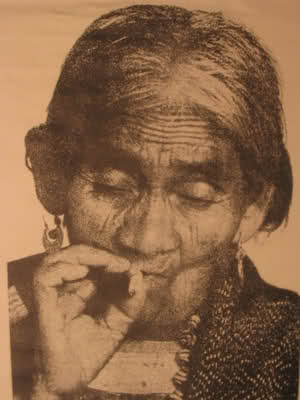Hour 25 hosted by Mike Hodel
A Talk with Philip K. Dick (1976)
1) Why Science Fiction? SF is a ghetto.
Why write science fiction, was it a conscious decision? People say 'SF is a ghetto', and 'SF is the literature of ideas'; why? Science Fiction is becoming like silly putty. If it's got enough four-letter-words, then it's not SF. Talk of Harlan Ellison, Barry Malzberg, Kurt Vonnegut, Robert Silverberg, Robert Heinlein, and publishers (esp. Doubleday) and publishing. How long were you writing before you sold your first story?
2) Starting out and doing research
"I started out as a really good writer under Tony Boucher's direction." How do you work, what are your working habits? "I love to write, and I'd write if they didn't pay me anything." Deus Irae (with Roger Zelazny) ... now I spend my time doing research, rather than just writing non-stop. Did seven years of research for Man in the High Castle - never wrote a sequel because reading Gestapo diaries was too awful. Discusses using the I Ching to write. Loved Sladek's parody, "Solar Shoe-salesman". "If Science Fiction is going to go down the tubes, I'll go down the tubes with it."
3) Editors and Translations
Discuss Richard Lupoff and money for novels. "Don't believe anything a fiction writer tells you." Had two good books because of two good editors; Pete Israel (Man in the High Castle) and Judy-Lynn Del Ray (A Scanner Darkly) - "probably the greatest editor since Maxwell Perkins". I wouldn't publish the German version of Man in the High Castle unless I could read it first, and they cheapened it into a cheap, adventure novel - they didn't know I could read German. Difficulties with the Japanese version. Begin discussing "A Scanner Darkly".
4) 'A Scanner Darkly' reading and silly putty world of SF
Reads from "A Scanner Darkly", a funny suicide scene. (to 3:45) - about the ultimate ironies of drug use, how far you could push the tragedies of the drug world. Discuss situations and characters; Always tries to find a victim and a master of an idea, so you end up with a bifurcated society. Science Fiction has become very much like a silly putty world.
5) Who do you like? Screenplays and Sci-Fi statement
Asked, "how do you define Science Fiction?" Who do you like in the field; Tom Disch, Barry Malzberg, Phil Farmer, Spinrad, Katherine Kurtz (does not like Bob Silverberg, Harlan Ellison, cannot comment on Ursula K. Le Guin's writing). Discusses John W. Campbell award, and first award in Fullerton. Is the bad Sci-Fi driving out the good (Gresham's Law)? Science Fiction is the novel of the idea, not all we got now. Discusses X Minus One radio show ("Colony" and "The Defenders"). Herb Jaffe, option and screenplay of "Do Androids Dream of Electric Sheep?" Wrote a good screenplay of Ubik. "I hope people will come into the Science Fiction field, and write Science Fiction... Science Fiction is a lot of fun to write... and flip the bird to the people who want money."













































